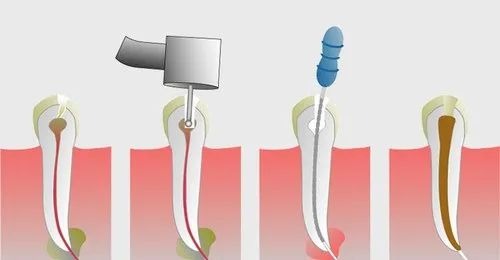Root canal therapy is a crucial dental procedure designed to save teeth that are severely infected or decayed. As one of the most common dental treatments, its long-term impact on dental health is significant. Root Canal Dubai, where advanced dental care is readily available, understanding the benefits and implications of root canal therapy can help patients make informed decisions about their oral health. This article explores the process of root canal therapy, its long-term benefits, potential risks, and how to maintain optimal dental health after the procedure.
Understanding Root Canal Therapy:
Root canal therapy, also known as endodontic treatment, involves removing the infected or damaged pulp from inside a tooth, cleaning and disinfecting the area, and then filling and sealing it to prevent further infection. This procedure is typically recommended when a tooth’s pulp becomes infected due to deep decay, repeated dental procedures, or a crack or chip in the tooth.
Steps Involved in Root Canal Therapy:
- Diagnosis and Preparation: The dentist takes X-rays to determine the extent of the infection and plans the treatment.
- Anesthesia: Local anesthesia is administered to numb the area around the affected tooth.
- Pulp Removal: The dentist creates an opening in the tooth’s crown to access the pulp chamber and root canals, removing the infected pulp.
- Cleaning and Shaping: The root canals are cleaned, shaped, and disinfected to remove any remaining bacteria.
- Filling: The cleaned canals are filled with a biocompatible material called gutta-percha and sealed to prevent reinfection.
- Restoration: The tooth is restored with a crown or filling to protect it and restore its function.
Long-Term Benefits of Root Canal Therapy:
Root canal therapy offers several long-term benefits for dental health, particularly in a city like Dubai, where high standards of dental care are maintained.
- Preservation of Natural Teeth: The primary benefit of root canal therapy is that it saves the natural tooth, preventing the need for extraction and replacement with a bridge or implant.
- Restored Functionality: After a successful root canal, the tooth can function normally for many years, allowing patients to chew and speak without discomfort.
- Aesthetic Preservation: By preserving the natural tooth, root canal therapy helps maintain the natural appearance of the smile, which is particularly important in a place where aesthetics are highly valued.
- Prevention of Complications: Treating the infection promptly prevents it from spreading to other teeth or to the jawbone, reducing the risk of abscesses and other serious dental issues.
Potential Risks and How to Mitigate Them:
While root canal therapy is generally safe and effective, there are potential risks and complications. Understanding these risks and how to mitigate them can help ensure a successful outcome.
- Reinfection: Although rare, reinfection can occur if the tooth is not properly sealed or if new decay develops. This can be mitigated by ensuring the final restoration (such as a crown) is done correctly and by maintaining good oral hygiene.
- Tooth Fracture: A tooth that has undergone root canal therapy can become brittle and may fracture. Using a crown to protect the tooth can help prevent this.
- Incomplete Cleaning: In some cases, the root canals may be complex and difficult to clean thoroughly. Ensuring the procedure is done by an experienced endodontist can minimize this risk.
Maintaining Dental Health After Root Canal Therapy:
Maintaining optimal dental health after a root canal is crucial to ensure the longevity of the treated tooth and overall oral health. Here are some key steps:
- Good Oral Hygiene: Brush twice daily with fluoride toothpaste and floss daily to keep your teeth and gums healthy.
- Regular Dental Check-Ups: Visit your dentist regularly for check-ups and cleanings to monitor the treated tooth and catch any potential issues early.
- Healthy Diet: A balanced diet that is low in sugar can help prevent further decay and maintain overall dental health.
- Avoid Hard Foods: Be cautious with hard foods that could crack the restored tooth.
- Addressing Bruxism: If you grind your teeth, consider using a nightguard to protect your teeth from excessive wear and potential damage.
FAQs:
Q1: What is root canal therapy?
A1: Root canal therapy is a dental procedure that involves removing infected or damaged pulp from inside a tooth, cleaning and disinfecting the area, and then filling and sealing it to prevent further infection.
Q2: How do I know if I need a root canal?
A2: Signs that you may need a root canal include severe tooth pain, sensitivity to hot or cold, swelling around the affected tooth, and a recurring pimple on the gums.
Q3: Is root canal therapy painful?
A3: With modern anesthetics and techniques, root canal therapy is typically no more painful than a standard filling. Most patients report feeling little to no pain during the procedure.
Q4: How long does a root canal procedure take?
A4: The duration of a root canal procedure can vary, but it typically takes one to two hours. In some cases, multiple visits may be required.
Q5: Can a root canal-treated tooth get infected again?
A5: Yes, a tooth that has undergone root canal therapy can get reinfected if it is not properly sealed or if new decay occurs. Regular dental check-ups and good oral hygiene are essential to prevent reinfection.
Q6: What are the benefits of root canal therapy?
A6: Root canal therapy preserves the natural tooth, restores its functionality, maintains the aesthetic appearance of the smile, and prevents complications from spreading infections.





Comments